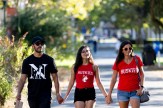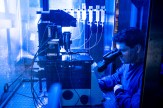He’s guiding the future of Northeastern in Seattle. His copilot would like a biscuit.
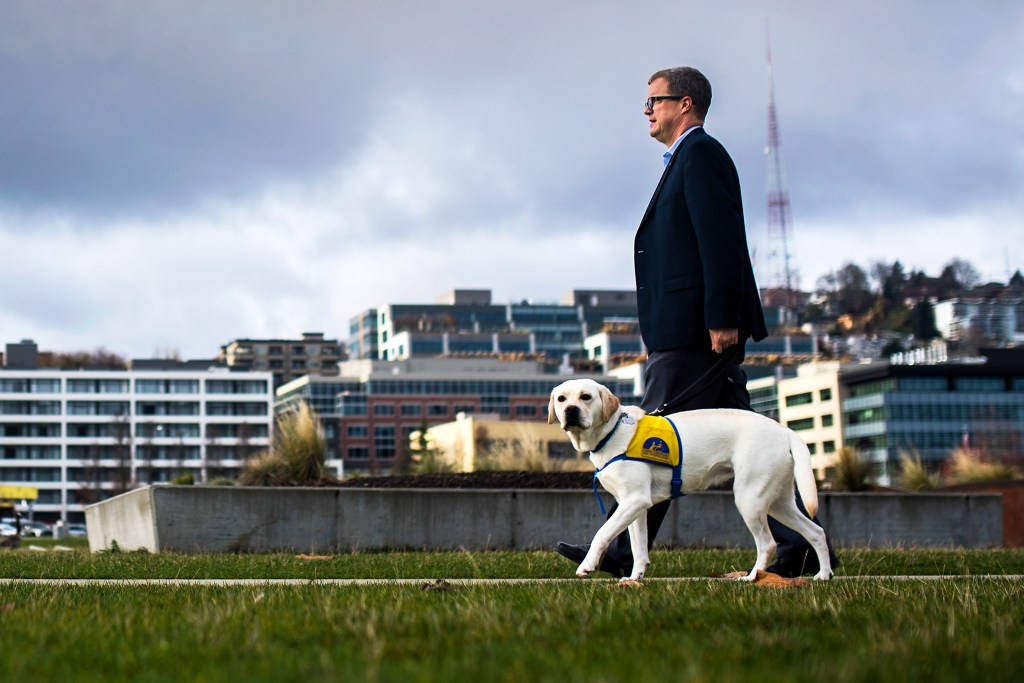
SEATTLE – Dave Thurman has two jobs. He is the new dean and chief executive officer of Northeastern in Seattle. He is also raising a puppy, named Ashlynn, with the goal of helping someone in need someday.
“Eventually, she’s going to be assigned to somebody who has a physical disability, or who’s deaf,” Thurman said of Ashlynn. “Or to a veteran with PTSD [post-traumatic stress disorder].”
These are ambitious times for Thurman, who in October took leadership of Northeastern’s campus here. He is in the midst of adding classroom and study spaces to the six-year-old campus, as well as hiring a facilities and operations director to extend university connections with the local community and businesses.
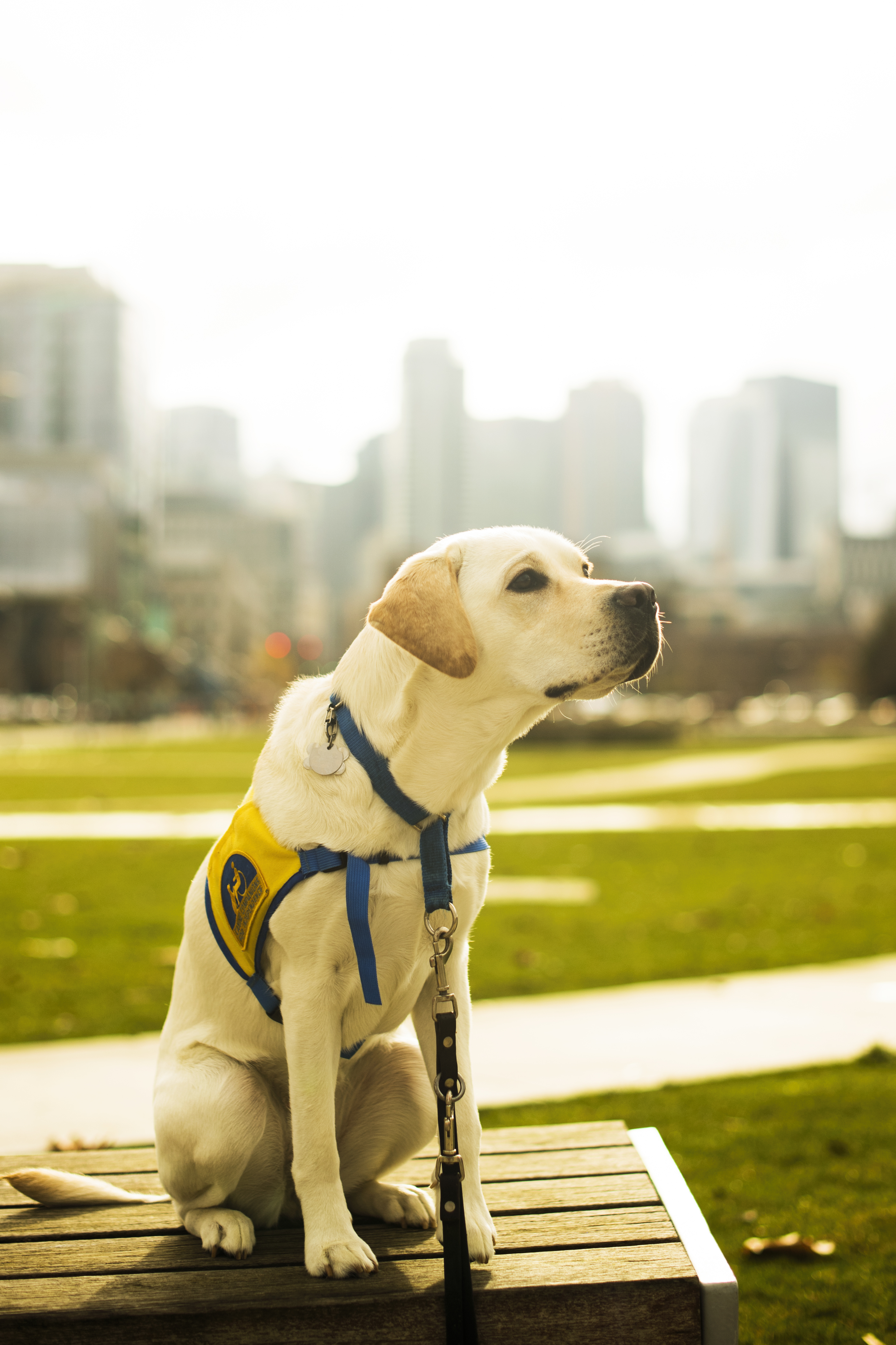
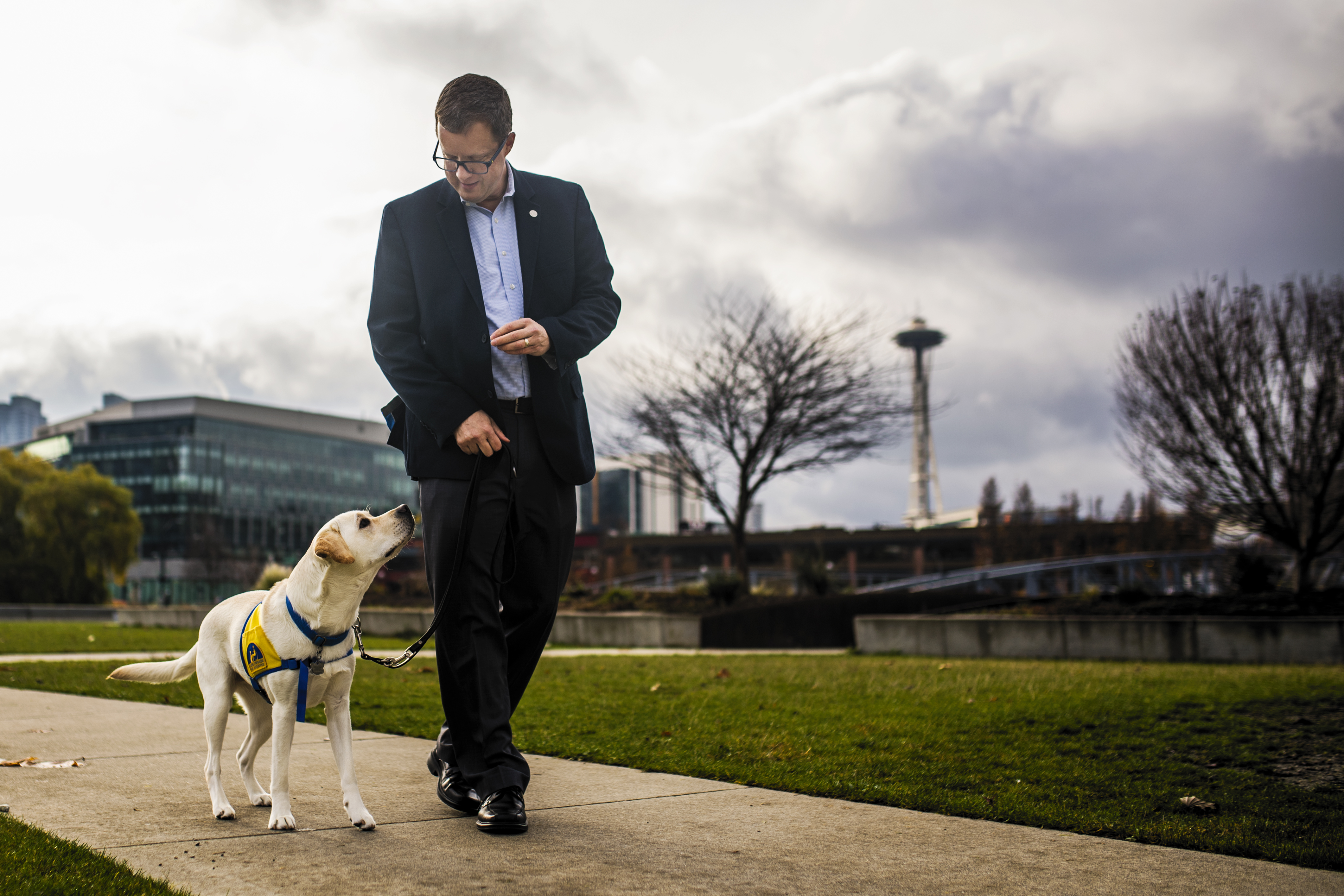
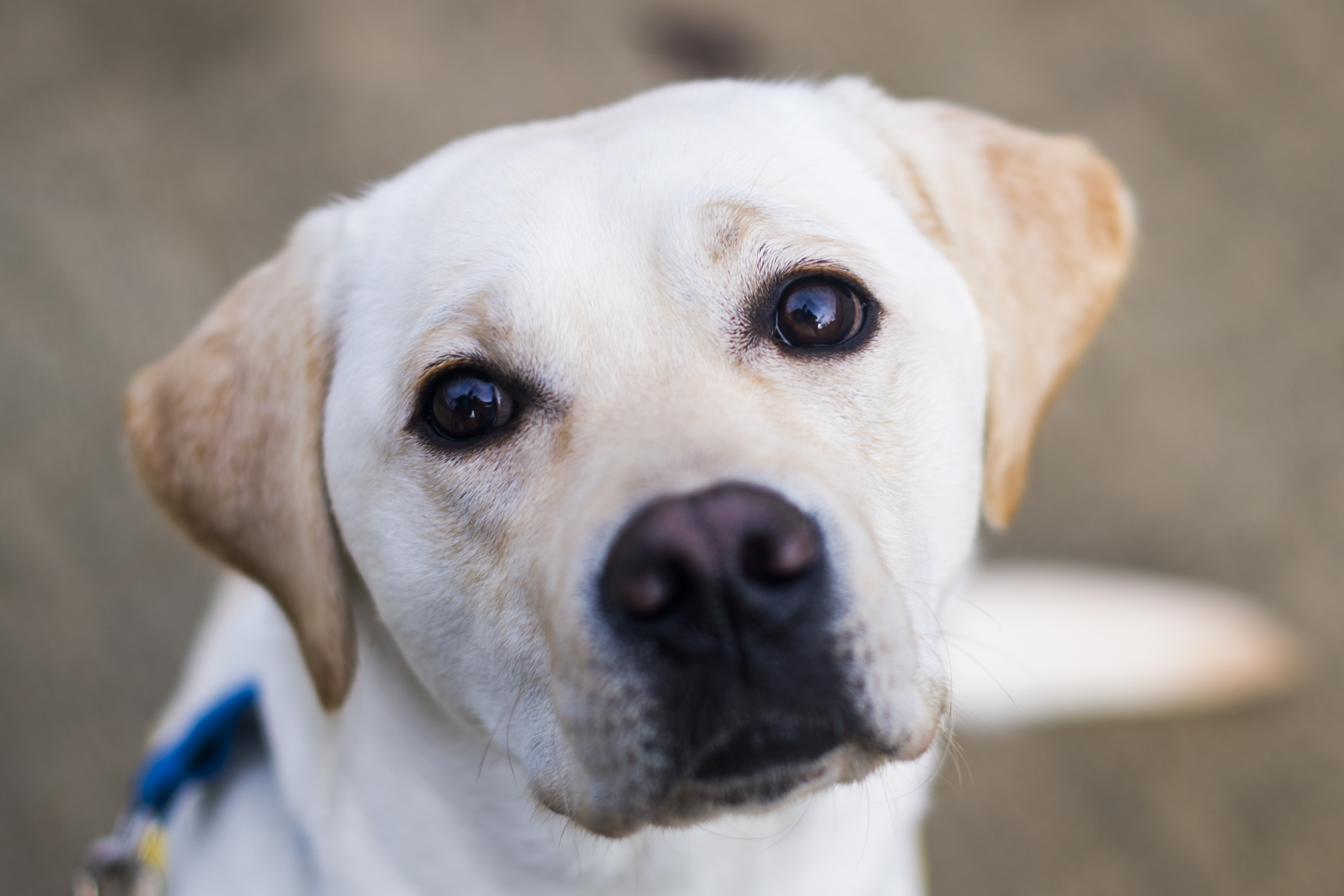
Thurman’s experiences have taught him that the presence of Ashlynn, a yellow Labrador-Golden Retriever mix, will have a constructive influence on everything he does.
“A dog can have a soothing effect in an office environment,” Thurman said. “Just having a dog in the room lowers the tension level for people.”
He traces his affinity for dogs like Ashlynn back more than a decade, when his young family happened to have three Labrador retrievers tearing up their home. Instead of finding another home for the dogs, Thurman ripped out the carpets and repainted the exposed hardwood floors. He was reimagining the home to fit their lifestyle, rather than the other way around. Living things were more important than inanimate objects.
“I painted hopscotch in the hallway, and a checkers board in the dining room,” he said. “My daughters loved it.”
Thurman had been working in Seattle’s tech community all of his adult life when Northeastern asked him to interview for his current job. He was a software engineer and manager with no academic work experience. In spite of his natural skepticism, Thurman was enticed by the university’s academic plan, Northeastern 2025, designed to help learners succeed in an era of unprecedented technological, social, and economic transformation.

Photo by Adam Glanzman/Northeastern University
“They recognize that the world is different now than it was 20 or 30 years ago, and that higher education needs to change as a result,” Thurman said of Northeastern’s vision. “They’ve got this whole approach to lifelong learning, that we’re going to help people re-skill every 10 years, and that’s the driver for this global university network that Northeastern is building. They’re offering a new model for higher education.”
In more than 25 years with Pacific Northwest National Laboratory, most recently as director of its Seattle Research Center, he had been conceiving programs in cybersecurity, data analytics, and automation technologies. Northeastern was offering another kind of cutting-edge project.
Help from a puppy
By March, or as soon as Ashlynn is housebroken, the dean of the Seattle campus will be accompanied by a fetching new partner. Ashlynn will follow Thurman into his Northeastern office every day. She will go with him everywhere.
Thurman and his family are volunteers for Canine Companions for Independence, a nonprofit organization that provides trained assistance dogs to people with disabilities. Thurman will be raising Ashlynn for the next 18 months in a variety of everyday situations.
“She will go to the movies with us, she will come to work with us, because that’s what she’ll be doing for somebody eventually,” Thurman said. “You don’t want the dog to freak out the first time it gets on a city bus, or is in a concert hall, or has to go climb open stairs with glass walls on either side. We do a lot of work with weird surfaces, so that the dogs are just used to slippery surfaces or walking across [sewer or subway] grates.”
Thurman has raised three dogs previously. The second of his pupils, Rhoda, gave birth recently to a litter. Ashlynn is one of Rhoda’s puppies.
“You’re constantly training it, socializing it, taking care of it, making it part of your family. I mean, you fall in love with this dog,” he said. “And after 18 months, you tear your heart out and turn this dog in.”
Each dog undergoes an additional half-year of intensive professional training.
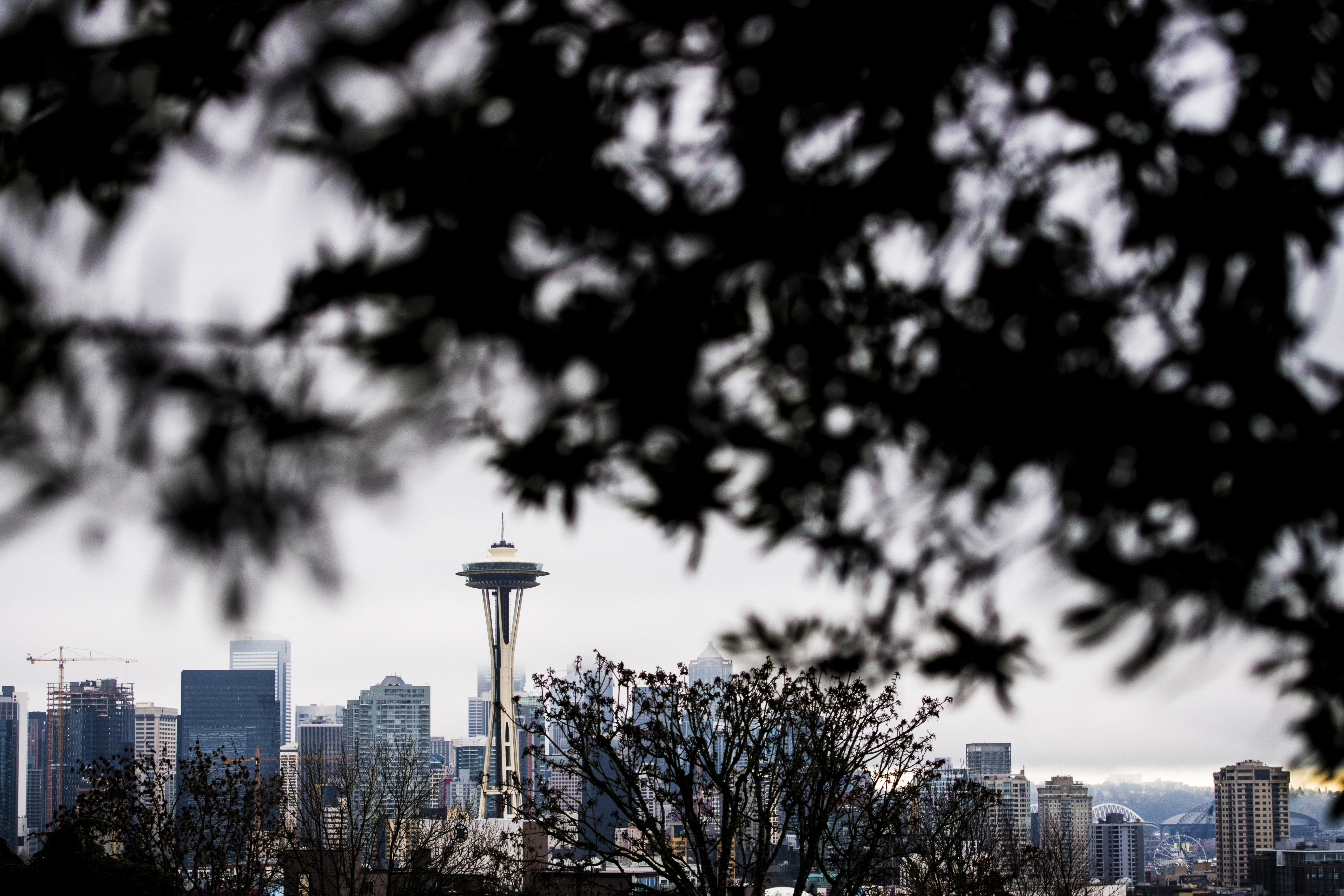
Photo by Adam Glanzman/Northeastern University
Thurman recognizes there is always the higher calling to be served: The deaf driver nudged by a service dog at the sound of an approaching ambulance, or the children and parents in the cancer ward who find comfort from the dog that patiently and gently wishes to nurture and play.
Thurman’s wife, Alison, teaches first grade at a local elementary school. A facility dog, an 80-pound Lab-Golden cross named Redford, stays each day in her classroom.
“It’s amazing the difference it makes,” Thurman said. “My wife can instantly see the difference in the kids. If one of them is having a rough day, and having a bit of a meltdown? Five minutes with the dog and they’re reinvigorated and ready to go.
“I see it, too. I would have people come down into my office just to spend time with the dog. They would be like, I just had the worst phone call with a sponsor or collaborator. Can I just hang out with the dog for a little while?”
Making sense of the future
The need for perspective and the creation of relationships are central to his duties with Northeastern. The Seattle campus is situated in the tech environment of Amazon, Facebook, Google, and other potential employers. One of Thurman’s priorities is to help students launch new careers by recognizing the employers’ point of view.
“I’ve managed research programs and organizations, and built business partnerships with other labs, companies, and universities,” he said of his previous life. “I was hiring these students. I was trying to find their destination.”
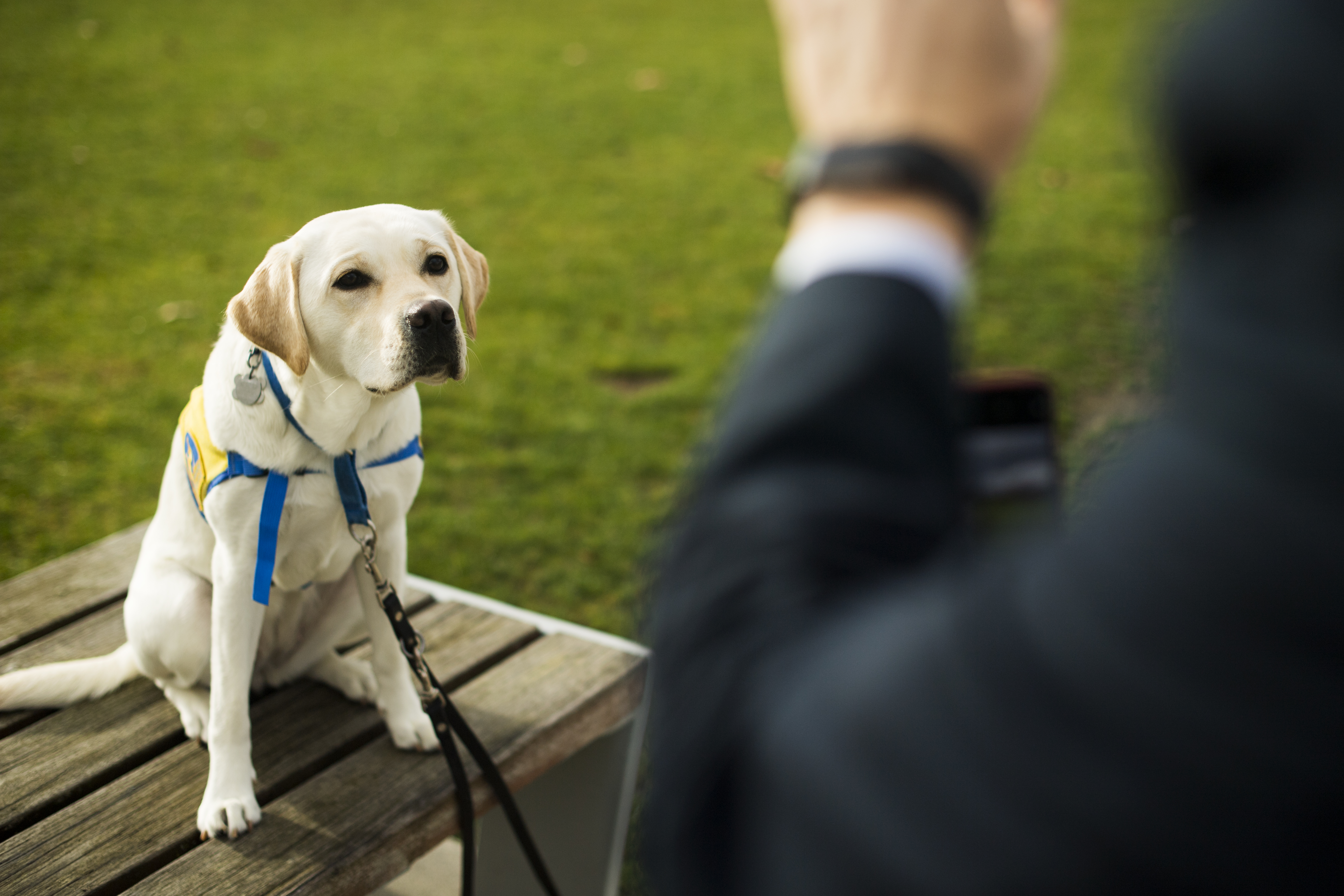
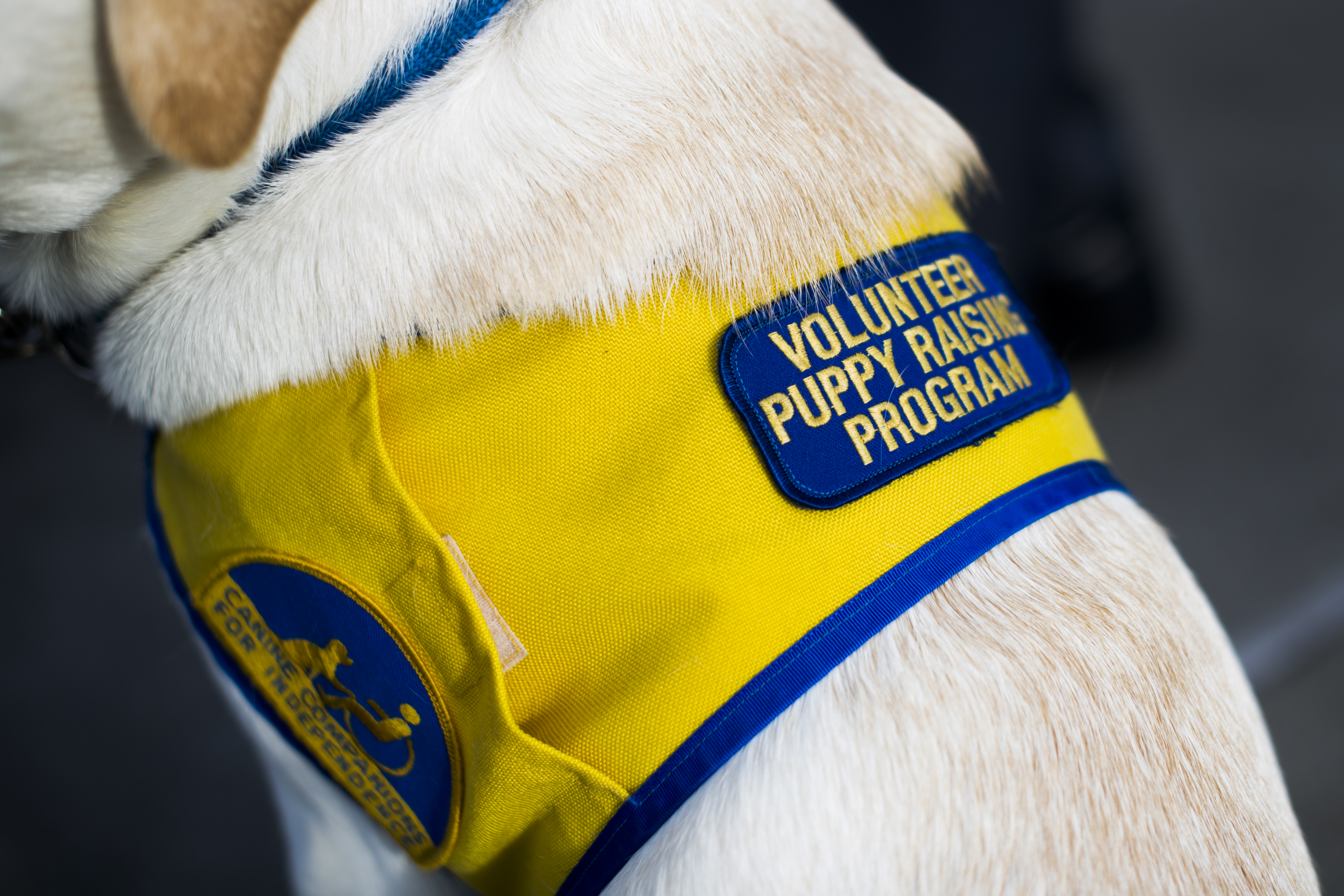
The campus in Seattle is not unlike a startup, operating in a cozy environment that encourages collaboration and goodwill. Thurman swung by one of the buildings on a recent Saturday night, late after a dinner in town with his wife, and found dozens of students working on assignments together. Their sense of togetherness has been inspiring him.
The idea of Northeastern 2025 is that humans should not be victims of the new digitized era, but rather the drivers of their own promising futures. And so Thurman’s mission is focused not so much on the software and machinery as it is on the people. Whenever the future appears to be arriving too fast, or he needs a peaceful moment to consider what comes next, he is going to find his hand drifting down to pet the golden fur of Ashlynn, settled at the foot of his office chair. And then he will feel, as he usually does, that tomorrow is going to be another beautiful day.
For media inquiries, please contact media@northeastern.edu.

